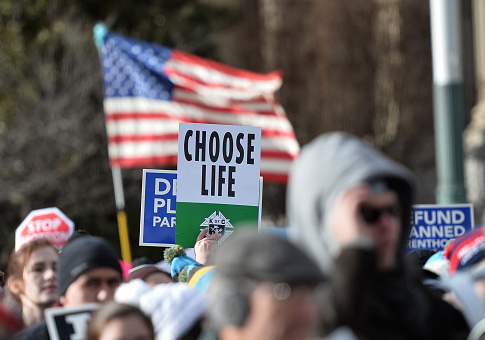Ohio legislators are expected to pass a bill through the House on Wednesday that would ban the abortion of any fetus diagnosed with Down syndrome.
If passed and signed by Gov. John Kasich (R.), Ohio would be the first state to ban abortions solely on one diagnosis of a genetic abnormality, according to the Cincinnati Enquirer.
The proposal would penalize doctors who perform the abortions, not the women who knowing receive an abortion after a fetus has been diagnosed with Down syndrome.
Under the proposal, physicians who break the law could lose their license to practice medicine, and be charged with a fourth-degree felony that is punishable by 18 months in prison and a $5,000 fine.
If a woman were to become injured or die during the procedure, the physician could also face lawsuits for performing a prohibited abortion.
Other states that have passed laws to ban the abortion of fetuses with genetic abnormalities include Indiana, North Dakota, and Louisiana. Although all three have passed a law, North Dakota is the only state to have implemented the ban. Indiana’s law was found unconstitutional by a federal judge, and Louisiana is facing a legal challenge over a full genetic abnormalities abortion ban.
The Ohio proposal has support in both the House and the Senate, with the Senate introducing an identical bill by Republican sponsor Sen. Frank LaRose.
"Many of my colleagues have expressed their support for our bill, and I expect that we will be able to get it passed soon," LaRose said.
Ohio's House Health Committee cleared the bill for a vote the same day Frank Stephens, a man with Down syndrome, took to Capitol Hill in Washington, D.C. He told a congressional committee his life is "worth living" as he advocated for those with the genetic disorder.
"I completely understand that the people pushing this particular ‘final solution' are saying that people like me should not exist," Stephens said. "That view is deeply prejudiced by an outdated idea of life with Down syndrome."
American women choose to terminate pregnancies between 50 and 85 percent of the time after receiving a fetal diagnosis of Down syndrome, according to a study published in 2012 in the medical journal "Prenatal Diagnosis."
The final passage of the pending bill will depend on Kasich, who has signed bills to limit access to abortion in the past. He supported a bill to limit abortion after 20 weeks, but he has also vetoed a "heartbeat bill" that would have banned abortions as early as six weeks, once a heartbeat is detected. Kasich declined to comment on the pending bill.
